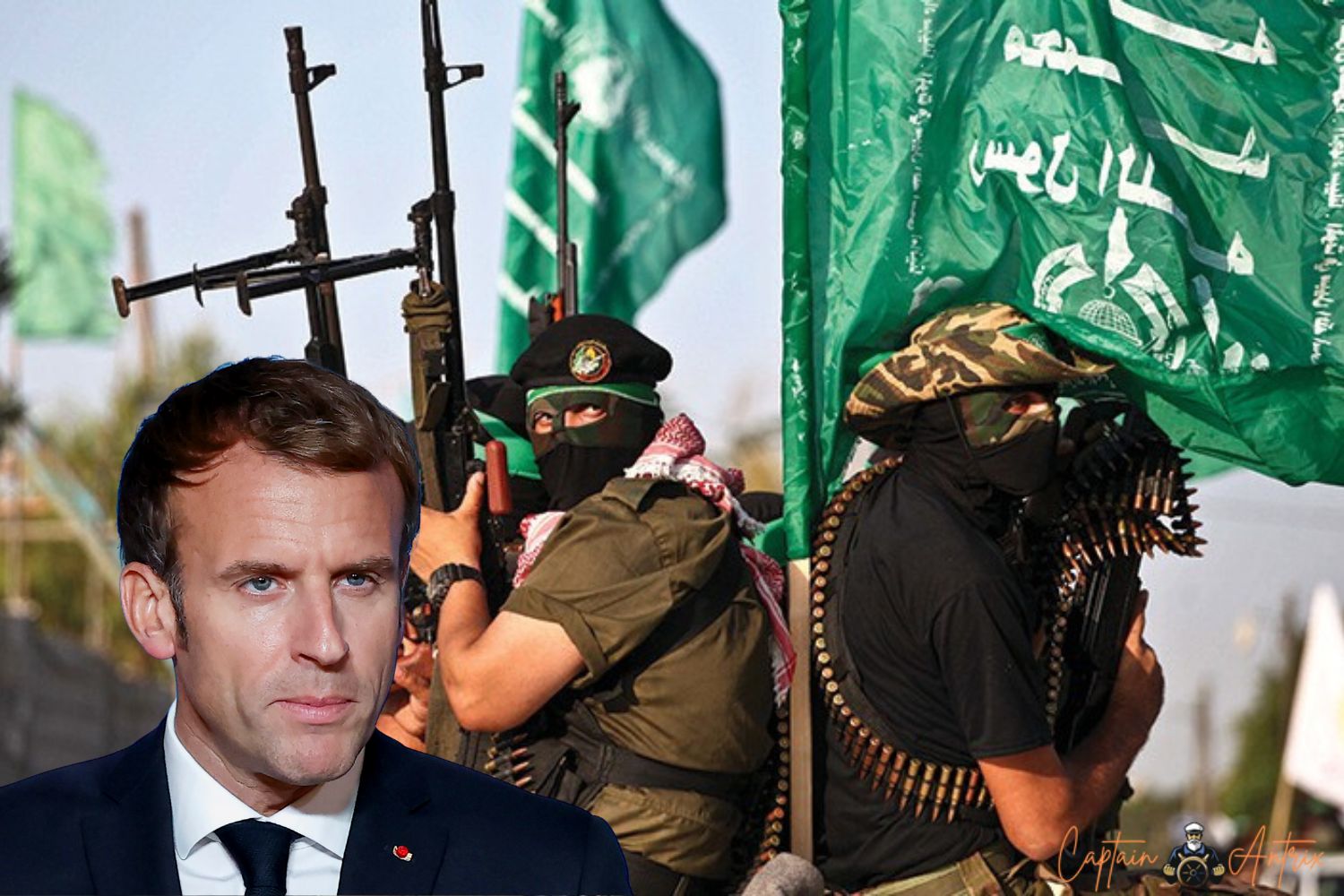
SOURCE: Stars and Strips
In recent developments, the French Interior Minister, Gérald Darmanin, has imposed a ban on pro-Palestinian demonstrations in response to the call by the former Hamas leader for worldwide protests in support of Palestinians. This call for a "day of rage" is a standard practice by the militant group, and the ban is driven by concerns over potential disruptions to public order.
The order, as reported by Agence France-Presse, was quickly followed by French police using tear gas and water cannons to disperse hundreds of pro-Palestinian demonstrators in Paris on the same day. French President Emmanuel Macron subsequently addressed the nation, urging restraint among Muslims and Jews, emphasizing the need to bridge divisions and eliminate suspicions.
Macron also emphasized the dangerous undercurrent of antisemitism, stating that it often serves as a prelude to other forms of hatred. He called for unity in condemning terrorism and defending the core values of the nation.
This ban, which was communicated through an order to police prefects across France, coincided with a call from Khaled Meshal, the former Hamas leader, for Muslims worldwide to stage demonstrations in support of Palestinians. Meshal's recorded statement, as reported by Reuters, urged those living in countries bordering Israel to join the conflict against Israel, further complicating the situation.
Meshal's statement has raised security concerns in countries with significant Jewish populations, such as the United States, where police agencies are planning to increase patrols. The Israel-Gaza war has led to pro-Palestinian protests worldwide, with authorities actively seeking to discourage them.
Protests have taken different forms in various parts of the world. In Sydney, pro-Palestinian demonstrators canceled a march due to concerns raised by local police about its unauthorized nature. In Britain, Home Secretary Suella Braverman warned against waving the Palestinian flag to justify acts of terror against Israelis. In New York, pro-Palestinian protesters clashed with pro-Israel demonstrators, resulting in tense standoffs, as reported by local media.

It's important to note that France is home to millions of Muslims and 442,000 Jewish residents, making it the world's third-largest Jewish population after the United States and Israel. These demographics add a layer of complexity to the situation, raising questions about multiculturalism and coexistence.
The situation in France has not been without its tragedies, with at least a dozen French nationals killed and 17 reported as missing, according to a spokesperson from the French Foreign Ministry.
In conclusion, the ban on pro-Palestinian demonstrations in France within the context of the Israel-Gaza war protests carries significant global implications. It intersects with the broader dynamics of the Israel-Palestine conflict, presenting a complex challenge for governments, law enforcement, and communities worldwide. Monitoring and analyzing the impact of these events and the responses to them are critical issues to address.
Tags:
Global News
